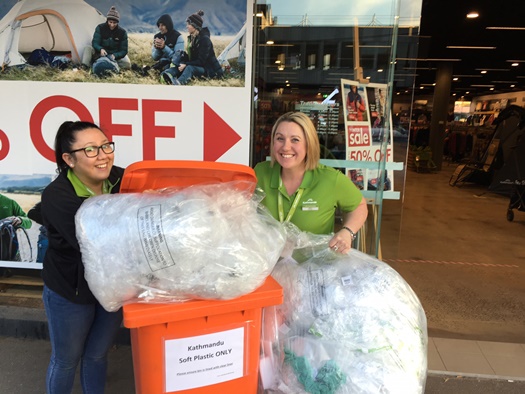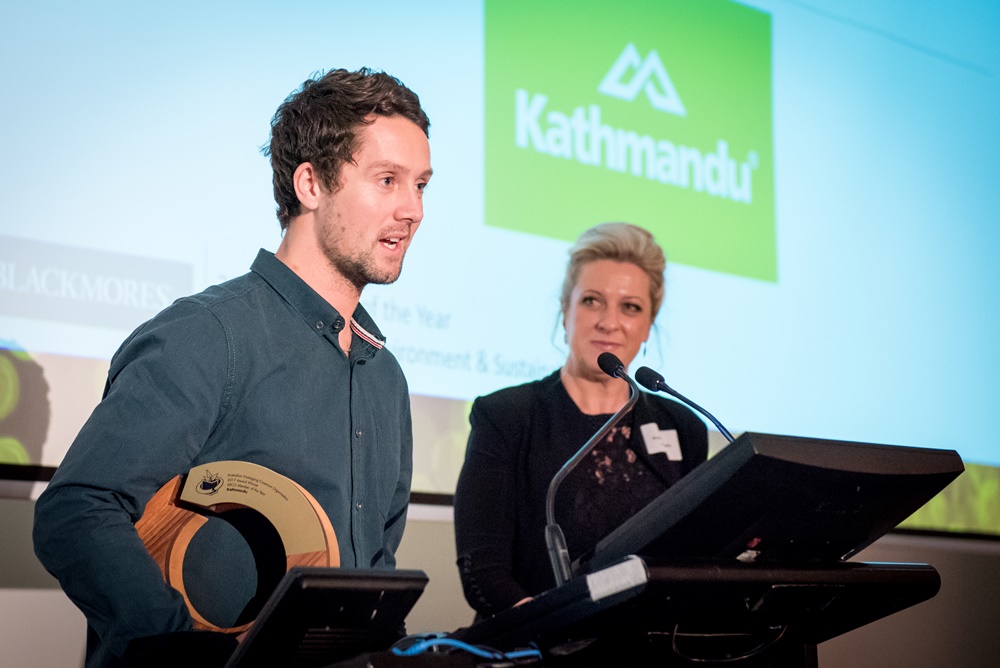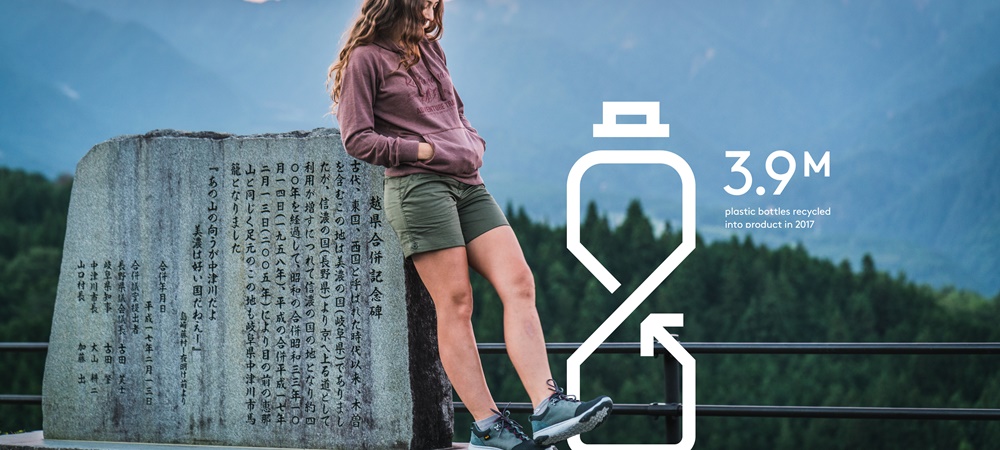As a retailer of outdoor gear, Kathmandu has a vested interest in the environment, but the urge to do good is about more than the bottom line.
The New Zealand-based company is committed to investing in ethical and sustainable practices across all facets of the business, from working conditions in its factories, to the materials it uses and the environmental footprint of its 160-plus stores across Australia and NZ.
From the top down, the retailer practices what it preaches. The Kathmandu head office, located in Christchurch, has a 5 Green Star Design rating for its efficiency and sustainability and the retailer has worked with the Green Building Council of Australia to develop stores that are more environmentally friendly.
This means using responsibly sourced timber and diverting waste from landfill during construction, as well as focusing on recycling once stores are operational. Kathmandu aims to send zero waste to landfill by 2018 and recycling is considered when a new store is being planned.
These are just a few examples of Kathmandu’s efforts to be a ‘green’ retailer, and ones its customers may not even be aware of. Kathmandu sustainability coordinator Oliver Milliner told Retailbiz the company’s initiatives are not necessarily about selling more product but being a business consumers can trust.

Kathmandu aims to send zero waste to landfill by 2018.
“We want to be a good brand people can trust and create good influence,” he said. “We want to get people outside and make them more aware and conscious of various environmental impacts. It’s about raising awareness among our customer base and getting them to buy gear that lasts.”
Turning waste into gear
Kathmandu is even turning waste into products through the Repreve recycled polyester program, which upcycles plastic bottles. In the 2016/17 financial year the retailer reused an impressive 3.9 million plastic bottles by turning them into polyester and using this to produce backpacks, fleece jackets and t-shirts.
Milliner said the program is particularly important as polyester—which is produced using fossil fuels—is used a lot in the apparel industry.
“We want to move into recycled plastics,” he said. “We’ve been doing [the bottle recycling program] for the past few years and it gets bigger year on year based on customer demand.”
Kathmandu was recognised for its sustainability efforts at the Australian Packaging Covenant Organisation’s (APCO) annual awards recently, where it was named outstanding member of the year.
APCO CEO Brooke Donnelly said the award was “very difficult to attain because it requires an organisation to perform at a level far beyond the average and even the exceptional benchmark”.

Kathmandu sustainability coordinator Oliver Milliner accepting the APCO member of the year award.
Donnelley told Retailbiz she believes retailers in Australia are not falling behind the rest of the world when it comes to sustainability, but there is always more work to be done.
“If you look at 10 to 15 years ago compared to now, [retailers] have made improvements and continue to do so,” she said. “The recent announcement by Woolworths and Coles introducing the plastic bag ban shows leadership and initiative… Retailers are doing a lot that is not necessarily visible to consumers.”
Being an ethical retail business isn’t in conflict with making money, as Kathmandu proves, with the retailer’s gross profiting increasing last financial year by 5.8 per cent.
“There’s a real business case behind sustainability,” said Donnelly. “There are proven benefits to the bottom line as well as branding implications. There’s really no bad news when you engage in sustainability. It’s a very positive space.”
Retailers should work together
Kathmandu’s Milliner said he encourages other retailers, particularly those in apparel, which have a similar footprint, to work together on the issue.
“Clothing retailers all have similar waste profiles so it’s very easy to have a conversation because we all have a similar impact… [We have] the same waste, the same material challenges, and a lot of us share the same factories.
“If we all have a discussion, we’d save money and time and have stronger business cases… It’s a case of looking past your competitors…and seeing it from a collaboration perspective.”
Donnelly said APCO is working on starting these kinds of conversations. The organisation is conducting engagement groups across its various sectors—sustainable packaging is an issue in areas including ITC, telecommunications and homewares—and will be doing the same with its retailer members.
“We will bring to the table all of our members and sit down and have a conversation about problematic materials, sustainability issues, key trends, and initiatives other members have taken,” Donnelly said.
Collaborating with and learning from other retailers is important, but the challenge for Kathmandu has been getting those outside the organisation on board with its sustainability efforts. “Getting external buy-in from other brands or people who are involved in our program [has been a challenge],” said Milliner. “The challenge is explaining what the benefits are. Once they have been explained usually the response is very positive. For example, working with landlords to recycle plastic—they actually save money.”
For Kathmandu, sustainability is about being transparent with stakeholders and customers. In fact, Milliner said being open and honest, even about your challenges and failures, will get results.
“A lot of people think [sustainability] is all about getting results and achievements straight away,” he said. “It doesn’t necessarily work out that way…It’s ok to be transparent, it’s almost more important than getting results—those results will fall naturally into place.”
Want the latest retail news delivered straight to your inbox? Click here to sign up to the weekly retailbiz newsletter.

